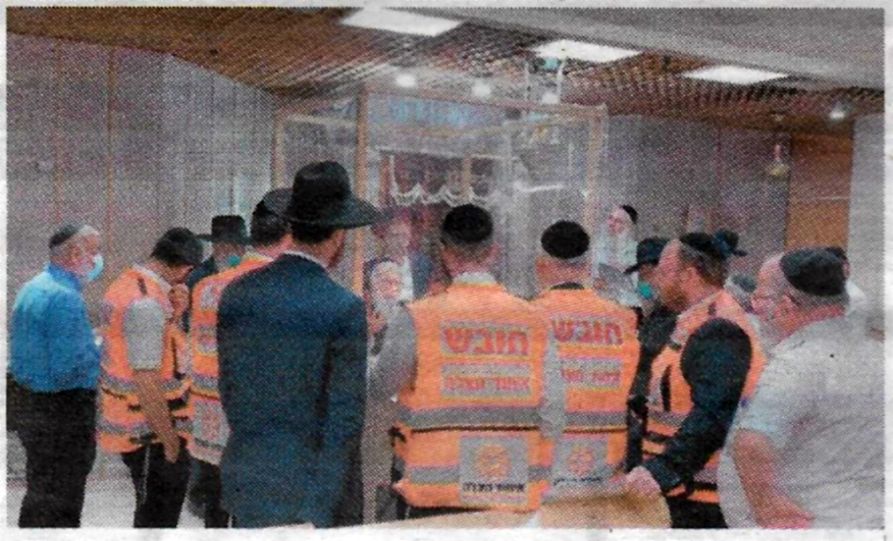
Dealing with the terrible terrorist act which took place last week in Elad raised difficult halachic and ethical questions among the volunteers of Ichud Hatzolah. A special meeting with HaRav Yitzchok Zilberstein together with the head of Ichud Hatzolah of Elad, Rabbi Moshe Saadon; president of Ichud Hatzolah of Bnei Brak, Rabbi Mordechai Barzilai; national halachic coordinator, Rabbi Naftali Halperin, and the volunteers who were the first to tend to the victims, dealt with a number of questions relating to the attack itself.
HaRav Zilberstein opened the meeting saying that we live in a time when our enemies seek to destroy our people, and attack and murder Jews for the very fact of their being Jews. This is defined in halacha as "a time of war" where we do not rule by "your life precedes," so that it is a sacred obligation for a person, especially a paramedic or person with medical know-how, to go forth and save the injured at a time of an attack, even at the risk of danger to himself.
On the basis of this principle, the Rav answered the first question of a volunteer who arrived at the scene and began treating the injured ones until he was informed that the terrorists were still in the area and that his life was in danger. The question: what should he have done?
The Rav said that the halacha determined: "If there is a danger to the one who has come to the rescue, he is not obligated to act, for his life precedes that of another, so that if the volunteer had not begun action or if the injured person was not seriously hurt, he was permitted to flee to save his life. But if the victim was seriously injured to the extent that he would die if left untreated, this fell into the category of not letting a person die without rushing to save his life."
Other questions raised dealt with triage, or priority in treatment. Was it permitted to stop treatment of a victim whose death was a foregone conclusion, to treat another badly wounded person whose life could be saved?
He said that a paramedic should treat the first victim he encounters according to the halachic ruling that one does not skip over mitzvos. He explained the different deliberations regarding "eternal life" versus "temporary life," but notwithstanding, one must know that if he chose correctly to treat one victim but it turned out that there was a lack of volunteers, he must not leave the victim he is already treating to treat another.
Another question was raised: A volunteer had begun treating a victim when he noticed many children gathering to observe. Should he have stopped the treatment in order to distance the children so as to prevent emotional damage from seeing such terrible sights?
The answer was that saving a life was of the utmost importance and one should not stop lifesaving treatment for a moment, even if the children were those of the paramedic himself.
What about bloodstained clothing which might have belonged to the terrorist? The answer was that such clothing should be buried, but separately from blood stained clothing definitely belonging to a dead man.
Then there were questions of conscience: What if a volunteer treated a badly injured victim, leaving another one untreated, when it turned out that the second one's condition deteriorated to a danger point. Should he feel blameworthy?
"Surely, not," said HaRav Zilberstein. "Such things are in the hand of Hashem." Treating any victim is being "involved in a mitzvah."
In such cases where there was no halachic authority to ask, a volunteer acts upon his own good judgment as a trained paramedic and from personal experience, with the goal being to save lives. What happened afterwards is not his fault.
The Rav wished the injured a refuah sheleimoh and strengthened the volunteer paramedics by saying that the deceased ones would surely recommend them for the good. To whom would the King be grateful if not to those who helped save His children through self-sacrifice of body and soul to save as many lives as possible?




